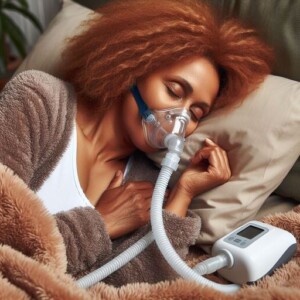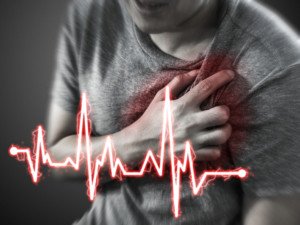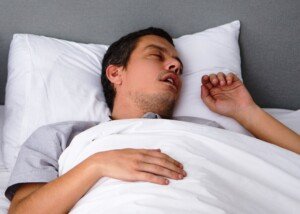
Asymptomatic people with sleep apnea should use a CPAP—and they shouldn’t, too; the answer depends on more specific data as well as the doctor treating the patient.
Whether or not a patient, who’s been diagnosed with sleep apnea but has no symptoms, should use a CPAP device is certainly one of the most debated topics in medicine.
For instance, a paper in the Annals of Internal Medicine (June 2001) offers a very interesting conclusion for a study:
“In patients with an apnea–hypopnea index of 30 or greater [severe sleep apnea] and no subjective daytime sleepiness, CPAP does not modify quality of life, objective sleepiness, attention, memory, information processing, visuomotor coordination, or arterial blood pressure,” states the paper.
“Treatment with CPAP is therefore not indicated in nonsleepy patients with a pathologic apnea–hypopnea index.”
The study does not take into account the increased cardiovascular risks of untreated apnea. The study did not analyze the following:
• Non-sleepy sleep apneics with a low apnea-hypopnea index (AHI) who did not use CPAP.
• Non-sleepy sleep apneics with a high AHI who did not use CPAP.
• Rate of cardiovascular incidents or diagnoses at some point later for each group.
All that study looked at was alleviation of symptoms, or, to put it another way, increased quality of daytime life as far as alertness, attention span and cognitive skills.
In short, the study looked at only short-term effects of not using a CPAP vs. using one.
Another study, however, has a different take.
“Treatment of sleep apnea patients may be justified even when symptoms are absent,” says a paper in the German medical journal Schweizerische Medizinische Wochenschrift (March 1995).
But then the paper points out that daytime sleepiness is a subjective symptom. This means that sometimes, sleepy people don’t think they have daytime drowsiness.
They unknowingly tailor their activities to accommodate a propensity for drowsiness, and thus, don’t really get all that groggy.
For instance, they avoid sitting for long periods. Or, they justify nodding off in front of the TV due to boring shows.
An apnea index greater than five nets a diagnosis of sleep apnea.
The German study notes that five or greater means an independent risk factor for a heart attack.
So if you’re wide awake as heck every second of the day and are always on the move, juggling multiple tasks and still piping energetic late into the evening – but, you have an AHI of at least five from your sleep study – you have a risk factor for a heart attack.

Shutterstock/pickingpok
“The main problem is scientific definition of cut-off points for treatment,” says the German report.
Doctors agree that people WITH symptoms should use a CPAP.
However, the paper says CPAP should be used also for the following:
• People without symptoms – but who have an AHI “in excess of 20-30.”
• People without symptoms – but who have other cardiovascular risk factors (e.g., obesity, diabetes, smoking) AND whose AHI is greater than only five.
• The paper’s abstract makes no mention of whether CPAP should be used by patients who 1) are asymptomatic, 2) have an AHI under 20, and 3) who also have no other cardiovascular risk factors.
“These laboratory cut-off values are not absolute values,” says the report, “but represent flexible guidelines for initiating a CPAP trial in asymptomatic patients with apnea.”
Let’s Dig Deeper
Now, in 2009, the American Academy of Sleep Medicine recommended CPAP for moderate to severe sleep apnea. But for mild disease, CPAP was named as only an “option.”
The AASM also recommended CPAP for symptomatic mild disease (AHI as low as five).
Symptoms
• Regularly feeling a need to nap during the day.
• Falling asleep during the day during passive activities.
• Never feeling refreshed even when “in bed” for 10 hours.
• Difficulty staying asleep overnight.
• Being told you snore or snort during sleep or naps.
• Being told your breathing periodically stops during sleep or naps.
• Waking to a struggle to inhale, resulting in gasping.
The AASM in 2014 revised its CPAP recommendations. If you had no symptoms and had an AHI as low as five, you should use a CPAP … if you had any of the following conditions:
• High blood pressure
• Coronary heart disease
• Congestive heart failure
• Atrial fibrillation
• History of stroke
• Type 2 diabetes
• Mood disorder
• Cognitive impairment
Are you really asymptomatic?
Joseph Krainin, MD, is board certified in sleep medicine and neurology and founder of the online sleep apnea clinic Singular Sleep.
Sometimes, he says, patients who report no symptoms actually do have symptoms.
Doctors need to ask them the right questions to get the real truth. “Are you sleepy during the day?” is ambiguous and conducive to an inaccurate response by the patient (though not intentional).
“Many mild sleep apnea patients have told me over the years they feel fine both when they wake up and during the day,” explains Dr. Krainin on his site.
These patients may even have a normal Epworth sleepiness scale score.
“But occasionally when I dig deeper and ask more specific questions like, ‘How long can you read?’ the answer is, ‘Oh, I don’t read because l’d fall asleep immediately,’” continues Dr. Krainin.
“Essentially, patients sometimes devise countermeasures by restructuring their lives to avoid situations in which they are likely to get sleepy,” he adds.
And then there are those who are so used to their less-than-perky feeling throughout the day that they don’t give it a second thought.
It’s like not being aware your vision has declined over the years from 20/20 to 20/40. But then you try on a prescription pair of glasses and realize what you’ve been missing.
A person with sleep apnea may have “habituated to their daytime symptoms and aren’t aware of how good they could feel with treatment,” says Dr. Krainin.
Dr. Krainin recommends that patients who are perplexed over whether or not to use CPAP discuss options with their sleep medicine doctor.
They should try CPAP for a month to give it a fair chance.
 In 2013 Dr. Krainin was elected a Fellow of the American Academy of Sleep Medicine, an honor reserved for sleep doctors who’ve made significant contributions to the field in education, research and service.
In 2013 Dr. Krainin was elected a Fellow of the American Academy of Sleep Medicine, an honor reserved for sleep doctors who’ve made significant contributions to the field in education, research and service.
 Lorra Garrick has been covering medical, fitness and cybersecurity topics for many years, having written thousands of articles for print magazines and websites, including as a ghostwriter. She’s also a former ACE-certified personal trainer.
Lorra Garrick has been covering medical, fitness and cybersecurity topics for many years, having written thousands of articles for print magazines and websites, including as a ghostwriter. She’s also a former ACE-certified personal trainer.
.









































